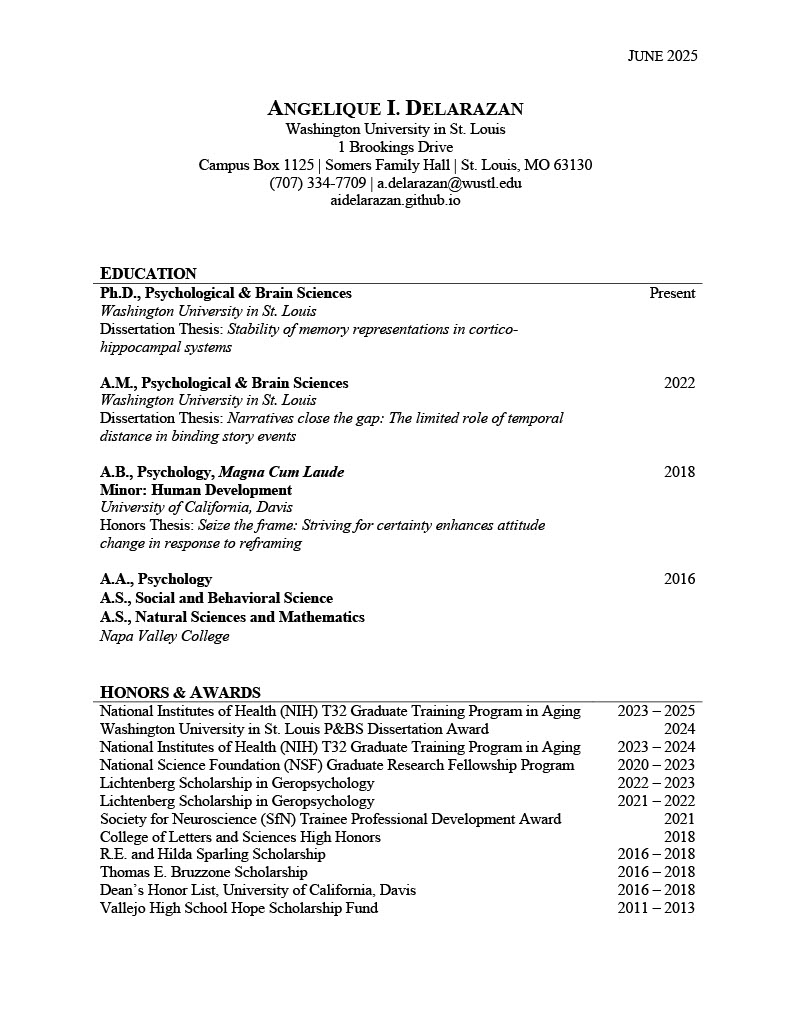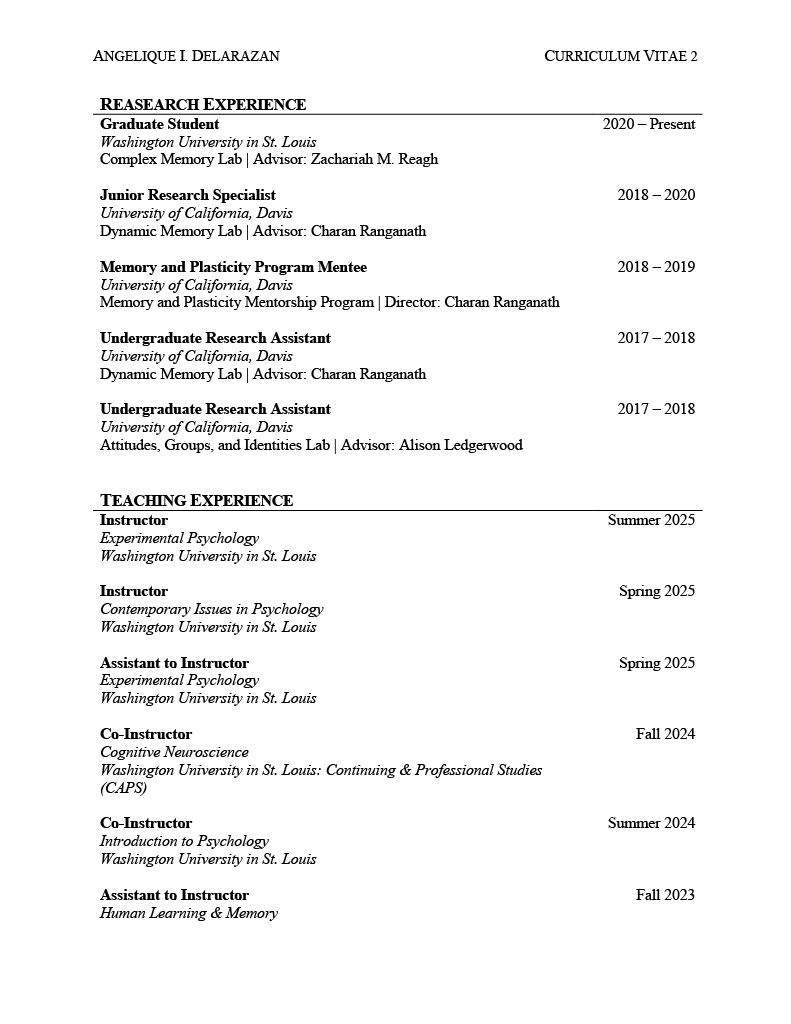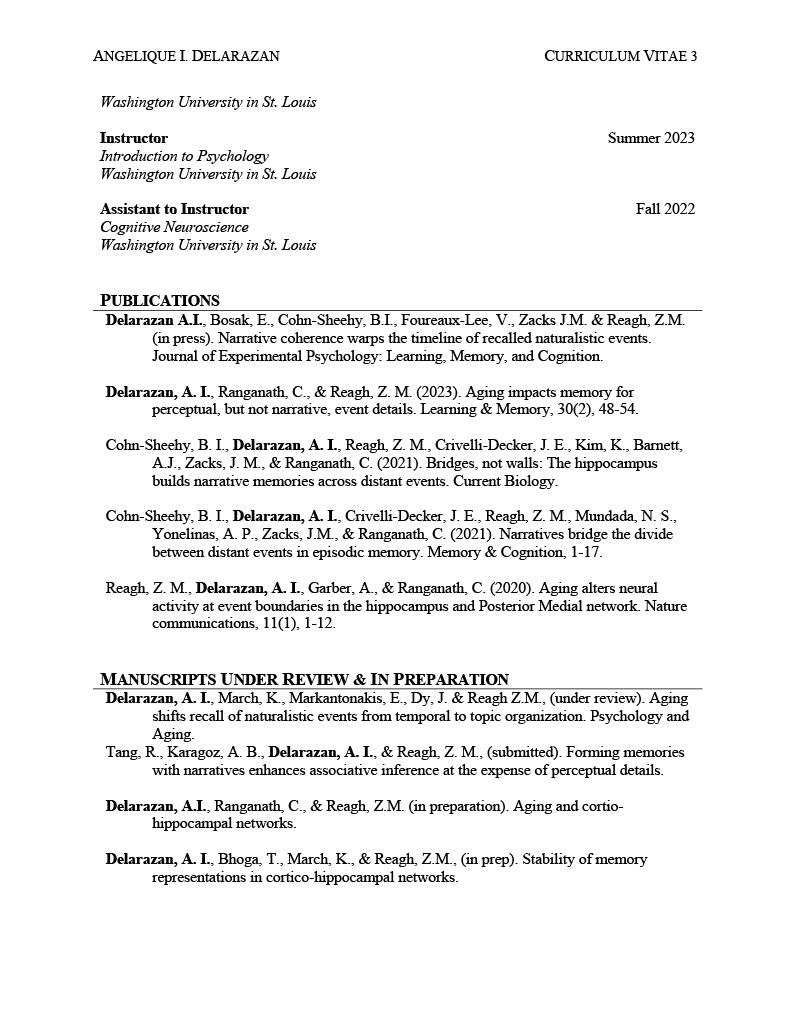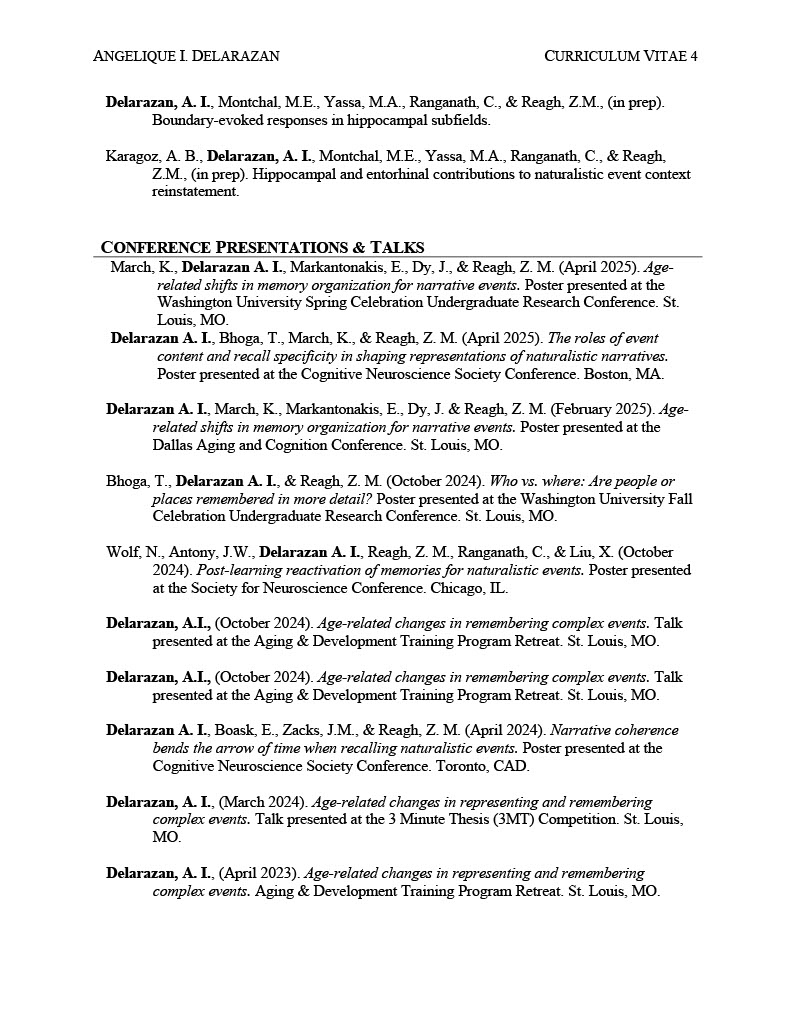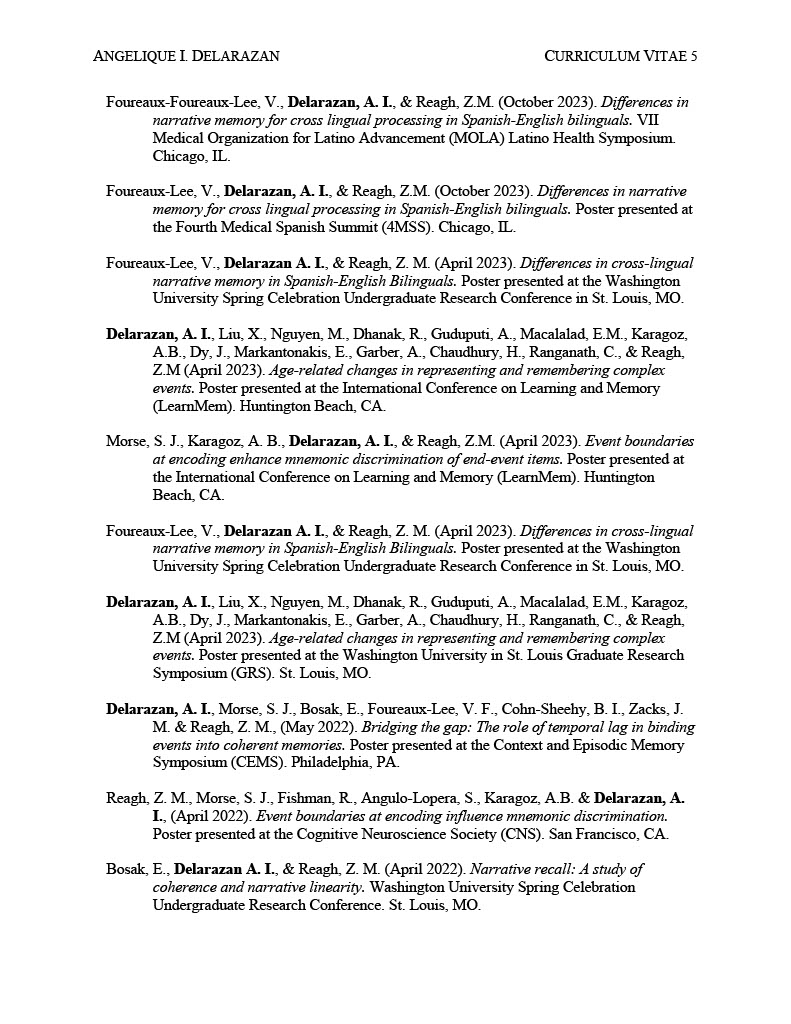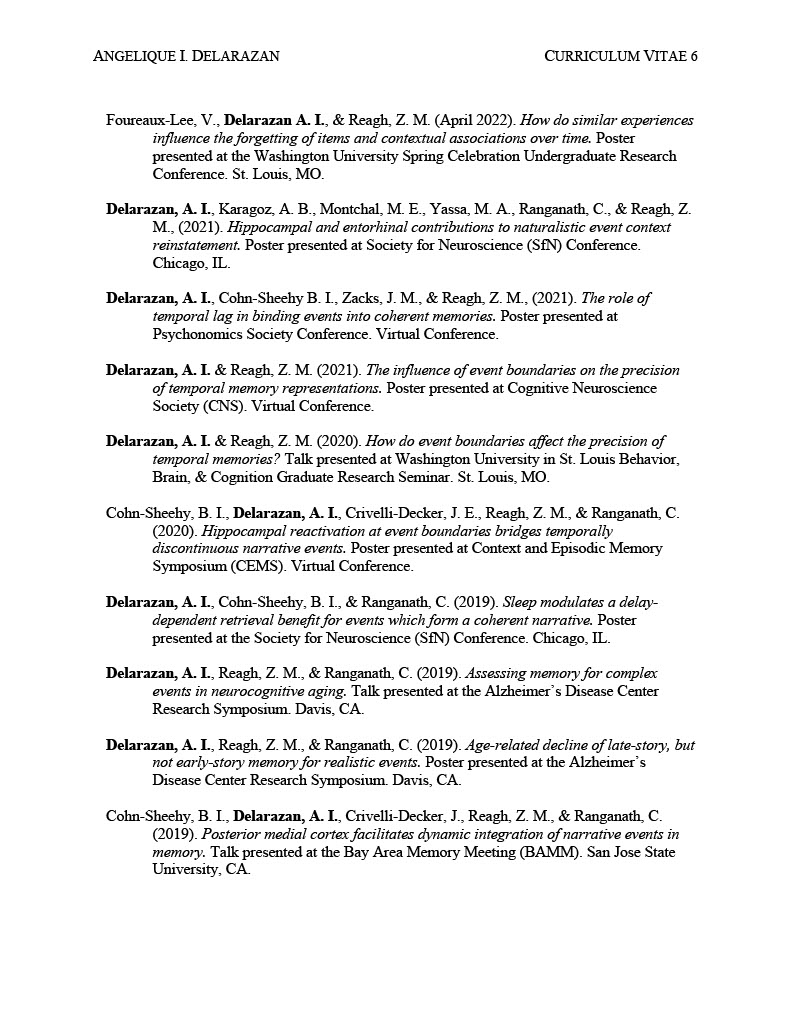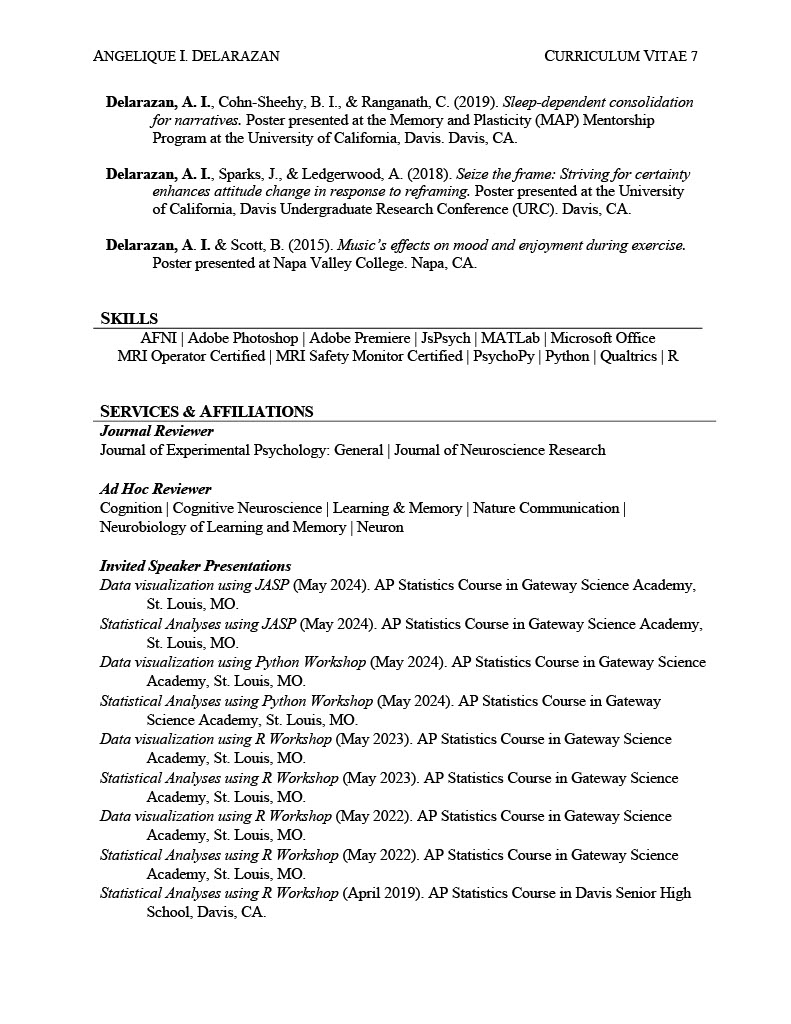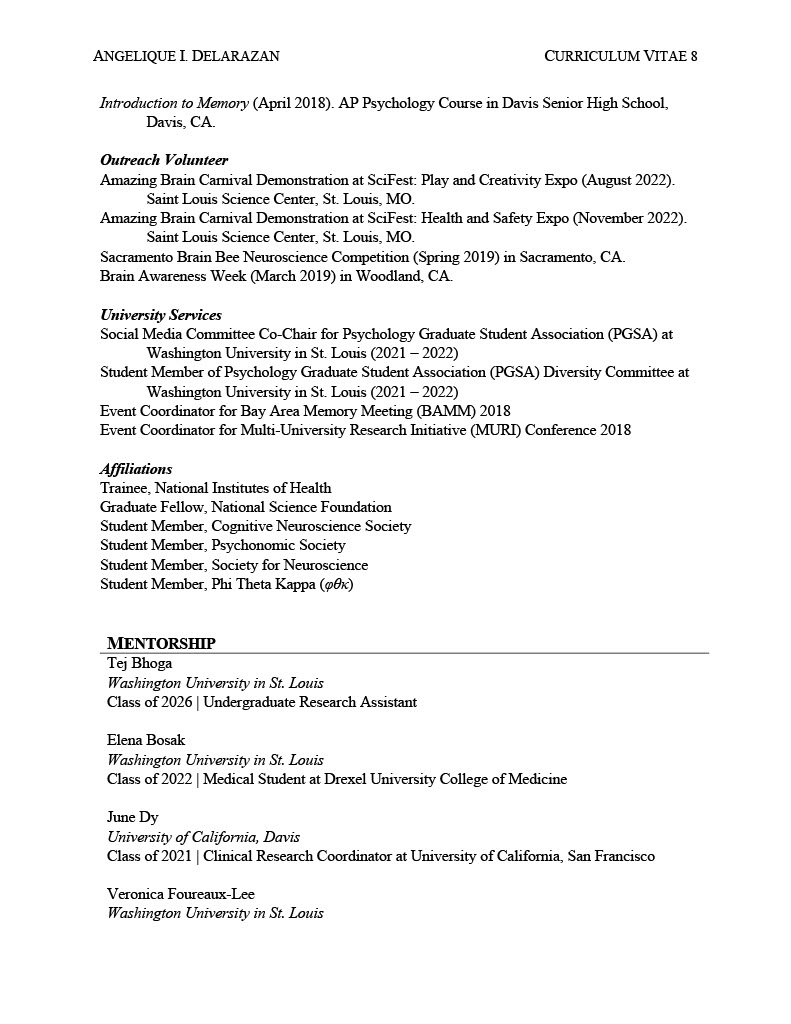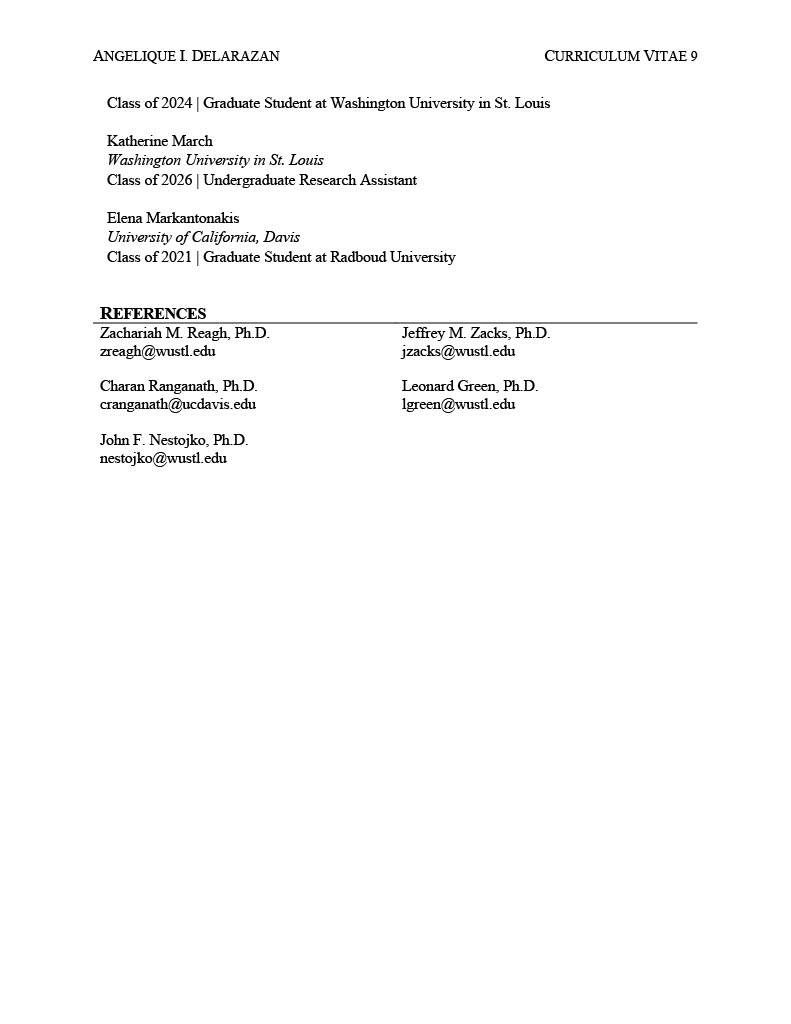About Me
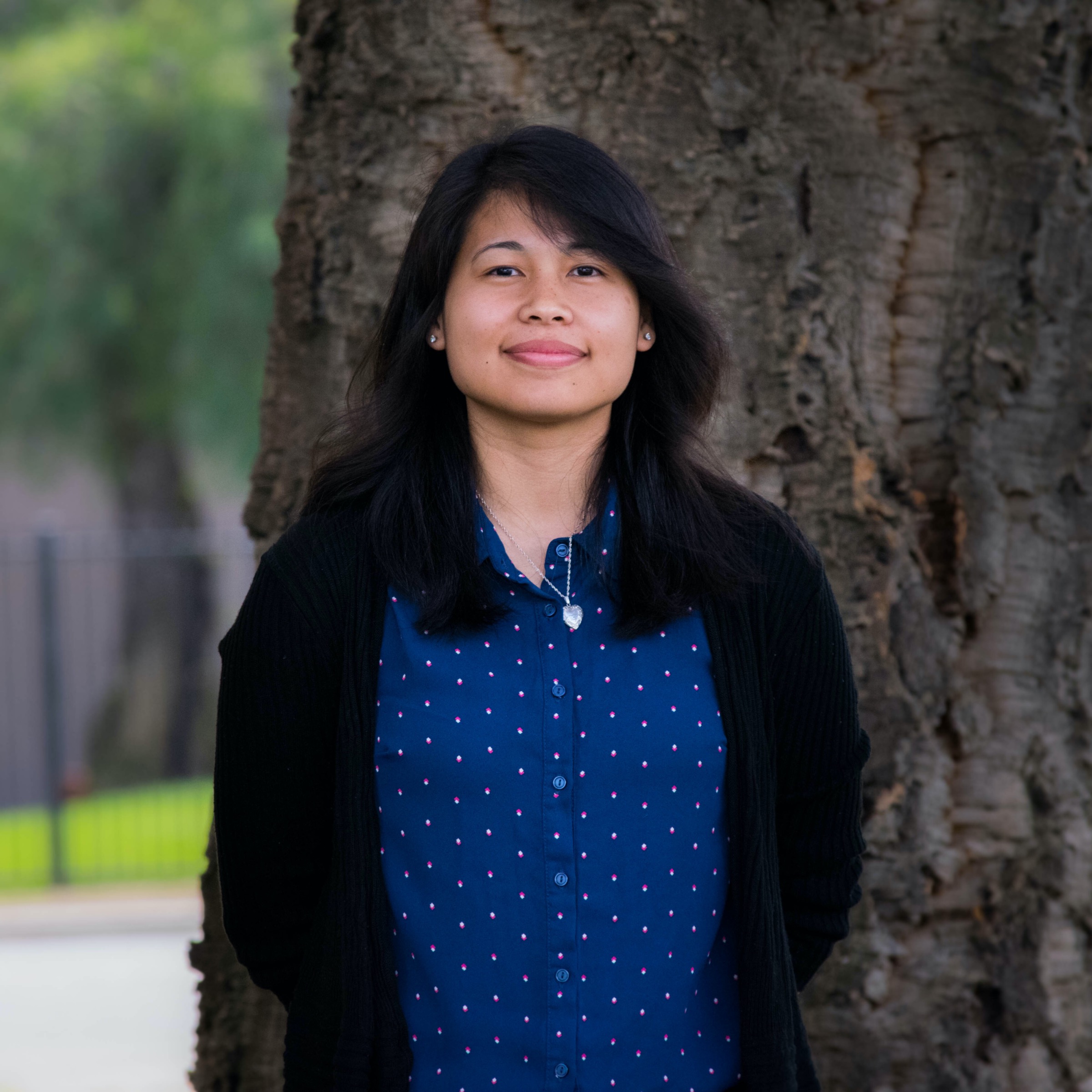
Growing up in a poverty-stricken community where schools were underperforming, and test scores were far below the state average, I never had the luxury of exploring the "what-ifs" of becoming a scientist. The schools in my community encouraged a mentality of survival rather than academic excellence, but despite a system that fought to keep me in the same neighborhood, I strove to break free from the cycle. I was accepted to top universities after high school, but my parents were unable to financially support me in this endeavor. I pursued nursing because a program was offered at a nearby community college and its expense was minuscule compared to a four-year institution.
I attended Napa Valley College and completed training that allowed me to work in a nursing facility that helps patients with physical and cognitive impairments. My interactions with these patients always left me wondering how the physical deterioration of their brain could affect their entire being. I became curious to understand the mechanisms that underlie their behaviors, so I engrossed myself in the interdisciplinary fields of psychology and cognitive neuroscience. My pursuit of these disciplines allowed me to develop diverse theoretical and statistical skillsets which would enable me to take on a distinct challenge: disentangling the unknown, complex relationships between brain, mind, and behavior.
My growing interest in psychology and cognitive neuroscience led me to transfer to the University of California, Davis. The community college I attended did not provide me the opportunity to become involved in scientific research, so I sought research assistantships in two distinct labs upon transferring: Alison Ledgerwood's Attitudes, Group, and Identities Lab and Dr. Charan Ranganath's Dynamic Memory Lab. Under Dr. Ledgerwood's supervision, my honors thesis set out to identify individual differences in decision making using a spin-off of classical framing effects paradigms. As an undergraduate research assistant in Dr. Ranganath's, I was involved in identifying and manually tracing anatomical regions of interests for further analyses. This initial project provided exposure to fMRI techniques and enabled me to purse more advanced experimental work.
I was hired as a full-time researcher in Dr. Ranganath's lab upon graduation and was drawn to a line of memory research investigating how we construct and retrieve real world memories. I collaborated with a graduate student in a series of behavioral and fMRI experiments examining the memories for narrative events experienced at different times (Cohn-Sheehy, Delarazan et al., 2021; Cohn-Sheehy, Delarazan et al., 2022, Delarazan et al., in prep). I also worked with a post-doctoral research fellow to investigate age-related cognitive decline using naturalistic stimuli (Reagh et al., 2020).
This led me to a series of follow up aging experiments that was conducted as a graduate student (Delarazan et al., 2023 ; Delarazan et al., in prep) in Dr. Zachariah Reagh's Complex Memory Lab. My continuing involvement with aging research has earned me the National Institutes of Health (NIH) T32 Graduate Training Program in Aging and Lichtenberg Scholarship in Geropsychology. Prior to these accomplishments, I was awarded the National Science Foundation (NSF) Graduate Research Fellowship among other smaller awards.
As a graduate student, I am continuing to pursue the line of research involved in memory for naturalistic events, narratives, and aging through multiple behavioral and fMRI experiments, collaboration with colleagues, and presentation of the research in local, national, and international conferences. I am also gaining teaching experience through mentoring undergraduate research assistants, assisting instructors, and teaching my own classes. Lastly, I am involved in outreach opportunities including holding R and Python workshops at a local high school and volunteering at science-related events in the community to inspire and educate others of all ages about research.
In my free time, I enjoy staying active (e.g., strength training, badminton, running—basically anything to keep me moving), making and editing videos, as well as hanging out with my partner, Erwin, and my dog, Taro.
Research
My research interests span cognitive psychology and cognitive neuroscience with a focus on memory for naturalistic experiences and their neural underpinnings. An overwhelming amount of psychological memory studies have relied on simplistic stimuli such as learning a sequence of items (for example, a list of words) and later retrieving them. While these studies remain foundational and necessary to our understanding of memory processes, the real world encompasses so much more and consists of different components including the individual items, location, perceptual, and narrative information. I am particularly interested in assessing exactly how the components of memories are organized and how the neural mechanisms that support them operate at its core.
 PUBLICATIONS
PUBLICATIONS
Delarazan A. I., March, K., Markantonakis, E., Dy, J. & Reagh Z.M., (under review). Aging shifts recall of naturalistic events from temporal to topic organization.
Delarazan A. I., Bosak, E., Cohn-Sheehy, B.I., Foureaux-Lee, V., Zacks J.M. & Reagh, Z.M. (in press). Narrative coherence warps the timeline of recalled naturalistic events. Journal of Experimental Psychology: Learning, Memory, and Cognition.
Delarazan, A. I., Ranganath, C., & Reagh, Z. M. (2023). Aging impacts memory for perceptual, but not narrative, event details. Learning & Memory, 30(2), 48-54
Cohn-Sheehy, B. I., Delarazan, A. I., Crivelli-Decker, J. E., Reagh, Z. M., Mundada, N. S., Yonelinas, A. P., ... & Ranganath, C. (2022). Narratives bridge the divide between distant events in episodic memory. Memory & cognition, 50(3), 478-494.
Cohn-Sheehy, B. I., Delarazan, A. I., Reagh, Z. M., Crivelli-Decker, J. E., Kim, K., Barnett, A. J., ... & Ranganath, C. (2021). The hippocampus constructs narrative memories across distant events. Current Biology, 31(22), 4935-4945.
Reagh, Z. M., Delarazan, A. I., Garber, A., & Ranganath, C. (2020). Aging alters neural activity at event boundaries in the hippocampus and Posterior Medial network. Nature communications, 11(1), 1-12.
SELECTED TALKS AND PRESENTATIONS
Delarazan, A. I., Bhoga, T., March, K., & Reagh, Z. M. (April 2025). The roles of event content and recall specificity in shaping representations of naturalistic narratives. Poster presented at the Cognitive Neuroscience Society (CNS) Conference. Boston, MA.
Delarazan, A. I., Elena Bosak, Jeffrey M. Zacks, Zachariah M. Reagh (April 2024). Narrative coherence bends the arrow of time when recalling naturalistic events. Cognitive Neuroscience Society (CNS) Conference. Toronto, CA.
Delarazan, A. I., (March 2024). Age-related changes in representing and remembering complex events. 3 Minute Thesis (3MT) Competition. St. Louis, MO.
Lee, V., Delarazan, A. I., Reagh, Z.M. (October 2023). Differences in narrative memory for cross lingual processing in Spanish-English bilinguals. VII Medical Organization for Latino Advancement (MOLA) Latino Health Symposium. Chicago, IL.
Delarazan, A. I., Liu, X., Nguyen, M., Dhanak, R., Guduputi, A., Macalalad, E.M., Karagoz, A.B., Dy, J., Markantonakis, E., Garber, A., Chaudhury, H., Ranganath, C., and Reagh, Z.M (April 2023). Age-related changes in representing and remembering complex events. International Conference on Learning and Memory (LearnMem). Huntington Beach, CA.
Morse, S. J., Karagoz, A. B., Delarazan, A. I., and Reagh, Z.M (April 2023). Event boundaries at encoding enhance mnemonic discrimination of end-event items. International Conference on Learning and Memory (LearnMem). Huntington Beach, CA.
Delarazan, A. I., Morse, S. J., Bosak, E., Lee, V. F., Cohn-Sheehy, B. I., Zacks, J. M. & Reagh, Z. M., (May 2022). Bridging the gap: The role of temporal lag in binding events into coherent memories. Context and Episodic Memory Symposium (CEMS). Philadelphia, PA.
Bosak, E., Delarazan, A. I., & Reagh, Z. M. (April 2022). Narrative recall: A study of coherence and narrative linearity. Washington University Spring Celebration Undergraduate Research Conference in St. Louis, MO.
Lee, V., Delarazan, A. I., & Reagh, Z. M. (April 2022). How do similar experiences influence the forgetting of items and contextual associations over time. Washington University Spring Celebration Undergraduate Research Conference in St. Louis, MO.
Delarazan, A. I., Karagoz, A. B., Montchal, M. E., Yassa, M. A., Ranganath, C., & Reagh, Z. M., (2021). Hippocampal and entorhinal contributions to naturalistic event context reinstatement. Society for Neuroscience (SfN) Conference in Chicago, IL.
Teaching
What makes an experience memorable? Why do some experiences remain etched in our minds while others fade away? These questions have guided both my research and approach to teaching. As a memory researcher, I studied how we comprehend and retain experiences that reflect the real-world using naturalistic stimuli such as films and narratives. Across my experiments, I learned that we tend to remember moments that are engaging, meaningful, and reinforced through ongoing learning. The same principles that shape what we remember also emerge in the classroom. More importantly, these same principles form the foundation of my teaching philosophy. I believe students learn best when they actively engage with the material, connect it to their own experiences, and build on their prior knowledge over time. I aim to provide a learning experience that leave students not only with a strong foundation in psychology and cognitive neuroscience, but with the confidence and curiosity to carry those ideas forward long after the course ends.
COURSES
Role(s): Instructor; Co-Instructor
Course: Psych 100B Introduction to Psychology
Institution: Washington University in St. Louis
Course Description: A survey and analysis of concepts, theory, and research covering the areas of biological psychology, human development, learning, memory, social psychology, and mental disorders and their treatment. This is a general survey course designed to introduce students to the diversity of topics, research methods, and theories that comprise the study of mind and behavior.
Role(s): Instructor
Course: Psych 102 Contemporary Issues in Psychology
Institution: Washington University in St. Louis
Course Description: Seminar course that enables students to explore several of the ideas and issues in contemporary psychology. Students familiarize themselves with critical aspects of the issue and discuss and critically evaluate the pros and cons of each side.
Role(s): Instructor; Assistant to Instructor
Course: Psych 301 Experimental Psychology
Institution: Washington University in St. Louis
Course Description: A course that provides training in the logic, techniques, and design of psychology experiments. Topics include experimental design and control, library research, quantitative treatment of data, graphical presentation of results, and clarity of scientific writing. Lectures focus on general principles of experimentation, whereas the laboratory sections introduce a range of psychological phenomena through hands-on experience in experimentation.
Role(s): Assistant to Instructor
Course: Psych 380 Human Learning and Memory
Institution: Washington University in St. Louis
Course Description: A survey of issues related to the encoding, storage, and retrieval of information in humans. Topics include memory improvement strategies, people with extraordinary memories, memory illusions and distortions, among other topics.
Role(s): Co-Instructor; Assistant to Instructor
Course: Psych 3604 Cognitive Neuroscience
Institution: Washington University in St. Louis; Washington University in St. Louis Continuing and Professional Studies (CAPS)
Course Description: A general introduction to the underlying principles and mechanisms of brain function that give rise to complex human cognitive behavior. Emphasis will be placed on how emerging methods and approaches from both neuroscience and cognitive psychology have been integrated to yield new insights into the organization and structure of higher mental processes. Topics include perception, attention, memory, language, and executive control.
Curriculum Vitae
Download CV
Contact



